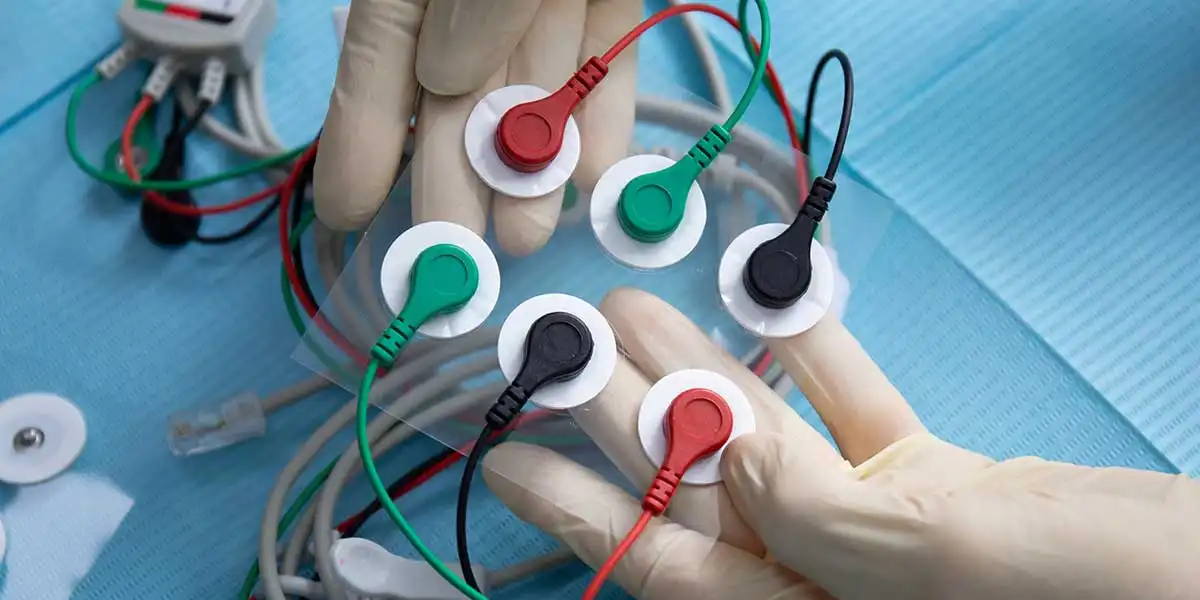
Oct 31, 2023
Blog Life Sciences Sparking the Mind: Exploring the World of Neurostimulation
Neurostimulation is a medical and therapeutic technique that involves the use of electrical, magnetic, or other forms of energy to stimulate the nervous system using invasive (e.g. microelectrodes) or non-invasive means (e.g. transcranial magnetic stimulation or transcranial electric stimulation, such as Transcranial direct current stimulation (tDCS) or transcranial alternating current stimulation). BCC Research expects the neurostimulation devices market size to expand at a CAGR of 7.4% to reach $11.7 billion by 2028.
A neurostimulator is a device that delivers electrical signals to the brain or other parts of the nervous system, usually to treat pain or neurological disorders. There are different types of neurostimulators, such as implantable, non-invasive, spinal cord, and deep brain stimulators. Each type has its own advantages and disadvantages, depending on the condition and the patient’s preferences. Some neurostimulators can be adjusted by the patient using a handheld programmer. Neurostimulation can help improve the quality of life of people who suffer from chronic pain, movement disorders, epilepsy, depression, and other conditions that are not well controlled by medications or other therapies.
BCC Research expects the neurostimulation devices market size to expand at a CAGR of 7.4% to reach $11.7 billion by 2028.
The market for neurostimulation devices is rapidly growing and competitive. It's predicted to reach a substantial value of $18.12 billion by 2030, as reported by The Brainy Insights. Several factors are fueling this growth, including the rising prevalence of neurological disorders, a growing demand for less invasive treatments, advancements in technology, and favorable reimbursement policies.
Moreover, the neurostimulation devices market is drawing substantial investments from various sources, including venture capital firms, government agencies, and research institutions. For instance, Nalu Medical, a company focusing on wireless neurostimulation devices for chronic pain, secured $25 million in a Series C funding round in 2022. This funding came primarily from Windham Venture Partners. In 2021, MicroTransponder, specializing in vagus nerve stimulation devices for stroke rehabilitation and tinnitus treatment, received $10 million from the National Institutes of Health (NIH) to conduct clinical trials. Aleva Neurotherapeutics, which develops directional deep brain stimulation devices for Parkinson's disease and other neurological disorders, secured $32 million in a Series E financing round in 2020, led by Omega Funds.
These examples highlight the promise and innovation within the field of neurostimulation. It has the potential to significantly improve the quality of life for millions of people facing various neurological conditions. The increased investment in neurostimulation devices also demonstrates the growing recognition of the value and impact of this technology within the healthcare sector.
Neurostimulation is a rapidly growing field, with a market projected to reach $11.7 billion by 2028 and $18.12 billion by 2030. Key companies like Medtronic, Boston Scientific, Abbott, Nevro, and Neuronetics, are driving innovation to treat various neurological conditions. Notably, substantial investments from venture capital firms, government agencies, and research institutions are fueling this growth, highlighting the potential to improve the quality of life for those with neurological disorders. This reflects the growing recognition of neurostimulation's value in healthcare.
Consider becoming a member of the BCC Research library and gain access to our full catalog of market research reports in your industry. Not seeing what you are looking for? We offer custom solutions too, including our new product line: Custom Intelligence Services.
Contact us today to find out more.

Karishma Arora is an Assistant Team Lead in Marketing Operations at BCC Research, with a master's degree in commerce. She is a passionate marketer with a knack for creativity and data-driven strategies.
In today’s fast-paced biomedical world, researchers and pharmaceutical companies...

Radiopharmaceuticals represent a cutting-edge frontier in modern medicine, offer...

Implantable Remote Patient Monitoring (IRPM) devices are revolutionizing healthc...

We are your trusted research partner, providing actionable insights and custom consulting across life sciences, advanced materials, and technology. Allow BCC Research to nurture your smartest business decisions today, tomorrow, and beyond.
Contact UsBCC Research provides objective, unbiased measurement and assessment of market opportunities with detailed market research reports. Our experienced industry analysts assess growth opportunities, market sizing, technologies, applications, supply chains and companies with the singular goal of helping you make informed business decisions, free of noise and hype.